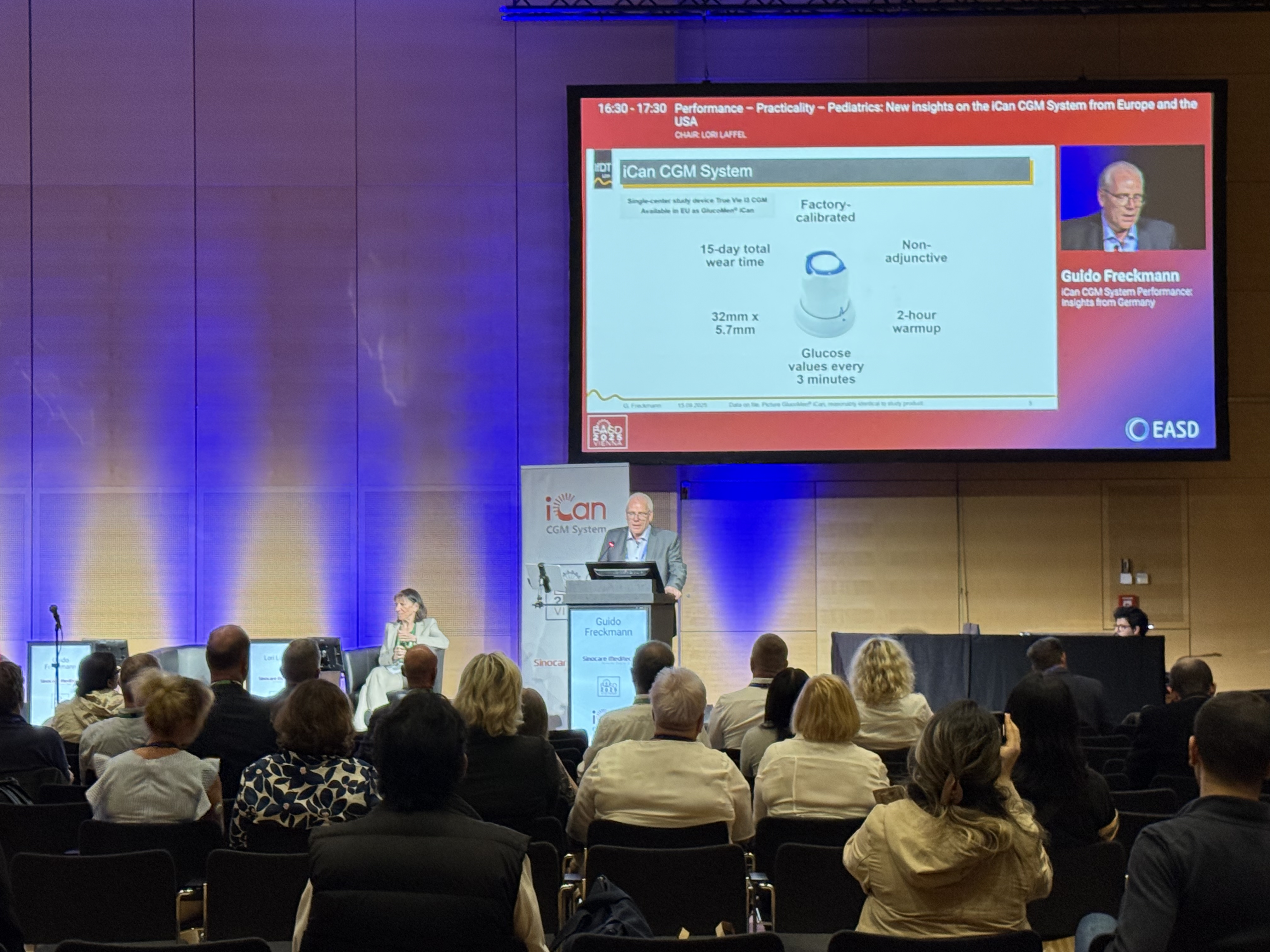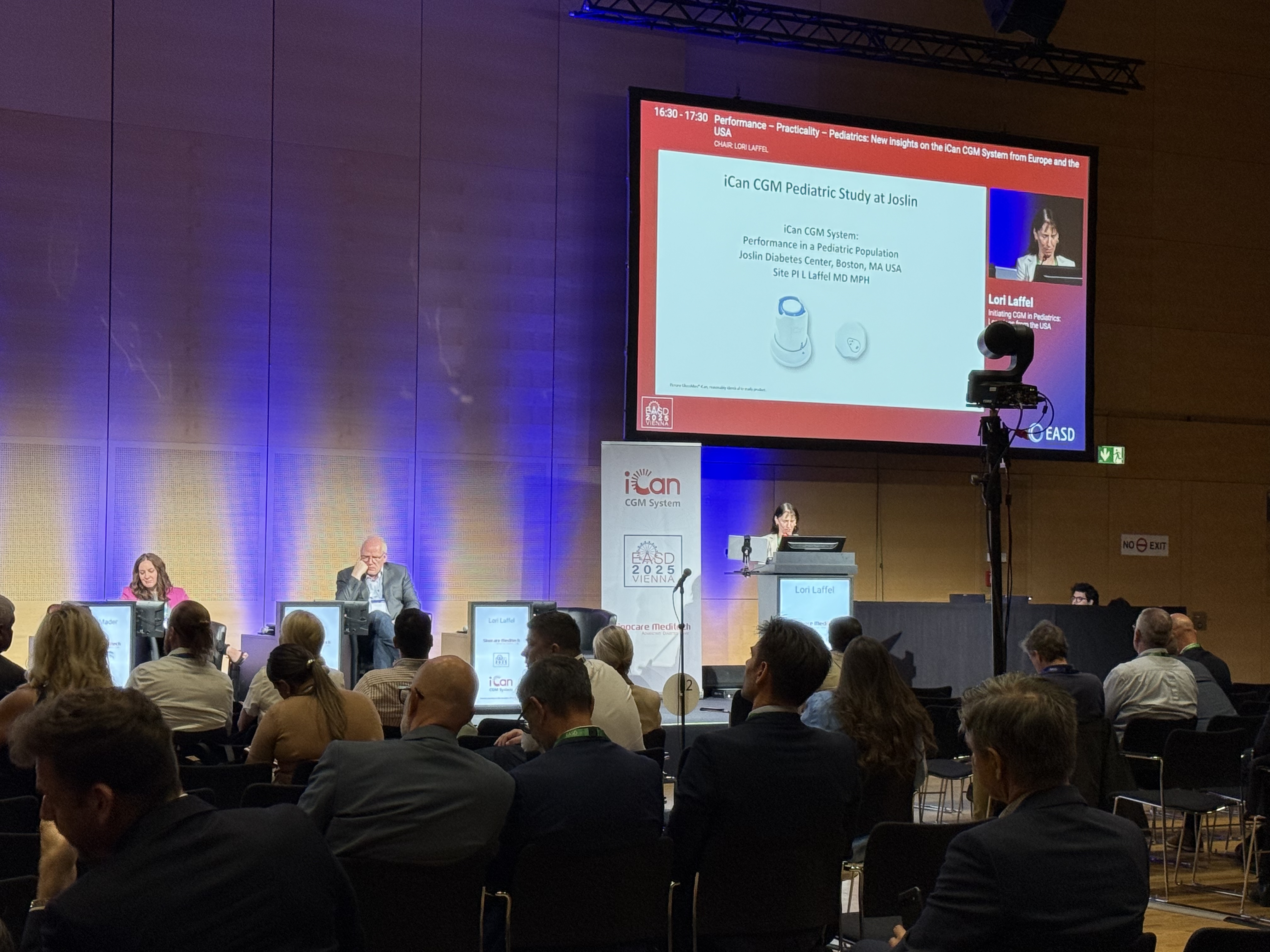Sinocare Partners with Leading International Diabetes Experts to Deliver Insightful CGM Education and Data Updates at EASD 2025
Sinocare continued our commitment to delivering insightful, CGM-focused education to international healthcare professionals at EASD 2025 in Vienna on Monday.
Highlighting the key themes of 'Performance – Practicality – Pediatrics' our symposium reported encouraging center data from recent German and US-based studies of the iCan CGM system in adults and children. In addition, it offered education on the initiation of CGM systems in real-life from a world-leading pediatric diabetes center and looked into the future of how diabetes technology use may influence travel and work opportunities for people living with diabetes who also have a love of flying!
Performance
Opening the session Prof. Lori Laffel, the internationally renowned pediatric endocrinologist and clinical investigator from Havard Medical School and the Joslin Diabetes Center, asserted the importance of accurate and reliable CGM systems in modern diabetes management.
Dr. Guido Freckmann, Medical Director and Head of Clinical Research at the Institute for Diabetes-Technology in Ulm, Germany, then shared a first look at iCan clinical data in German adults. This important research reinforces the iCan CGM System performance data in line with iCGM requirements and further demonstrates the exceptional wear-life of the iCan on-body-sensor, as seen in previous studies.

iCan CGM System Four body placement options, your choice!
Currently indicated for use for people aged 13 years and older, the iCan CGM System now offers more body placement options than the market leader; from the age of 13 users can experience the accuracy and the exceptional wear life of iCan whether worn on the abdomen or the arm.
Practicality
In a novel clinical study reviewing CGM and AID use in flight, Professor Julia Mader, leader of the Diabetes Technology Research Unit at the Medical University of Graz in Austria and EASD Executive Board Member, outlined the usability of iCan at 36,000 feet whilst moving through four different times zones.

iCan CGM System Practical across time zones!
Reviewing the practicalities of using diabetes technology during take-off, cruising and landing during a four-hour flight, Prof. Mader shared her team’s experience that modern technologies are a more attractive option for people with diabetes whether they are pilots, cabin crew or passengers.
Pediatrics
Prof. Laffel then closed the session by discussing her center’s approach to initiating CGM in children with new onset diabetes – stressing the importance of starting at the point of diagnosis.

iCan CGM System Suitable for children from the age of two years!
Presenting center data from the Joslin Diabetes Center, Prof. Laffel demonstrated the iCan CGM System to be a suitable option for children from the age of two using a device placed on the abdomen.
With EASD 2025 continuing until Friday 19th September, it is anticipated that the Sinocare booth will be kept busy with visitors from around the world enquiring about availability of the new i6 second generation iCan device. Featuring market leader equaling ease-of-use, an app with altitude capabilities, and being available in 27 languages, iCan i6 builds on the exceptional 15-day wear-life with reliable accuracy seen in previous models.
iCan i6 will be made available globally in the coming months, while iCan i3 continues to be available for those who value immediate access to an accurate, reliable and affordable CGM system.
